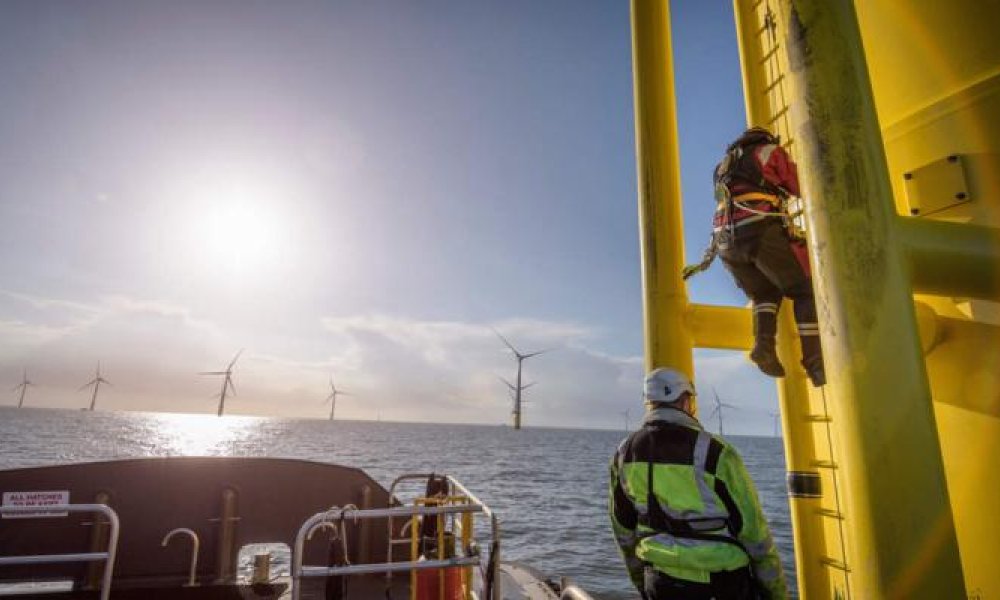Vestas Wind Systems, the Danish wind pioneer found in the Storebrand Global Solutions fund, has unveiled a breakthrough in wind turbine blade recycling. As a previous Solutions Spotlight article from 2021 described, Vestas took the initiative to a global coalition focused on recycling turbine blades. Now the work has yielded results.
A press release from February describes how the coalition has developed new chemical technology that eliminates the need to redesign blades or dispose of blades to landfills after the end of life . Instead, the epoxy resin material which has previously been the key headache to recycle, will be broken down to useable parts. The material holds such high quality that it can be re-used in new wind turbine blades.
Uponor, a Finnish company in the Storebrand Smart Cities fund, has also released breaking news. Together with three partners, Uponor released news of the world's first recycled cross-linked polyethylene (PEX) water pipes made on chemically recycled PEX waste. Uponor has also created the world's first bio-based water pipes, which leads to a 90 percent reduced carbon footprint compared to fossil-based pipes.
Nippon Telegraph and Telecom (NTT), a Japanese holding company in Storebrand Smart Cities, published the world's first optical computing artificial intelligence (AI) algorithm inspired by the human brain in a scientific journal. In collaboration with the University of Tokyo, NTT has developed a learning algorithm that uses analogue operations, rather than digital ones, to process multi-layered artificial neural networks. This approach results in significant reductions to the energy consumption and runtime of AI computations.
Nature's brilliance of constructing a brain using minimal energy makes this a fascinating case of biomimicry: humans mimicking a process developed by nature by evolution over thousands and millions of years.




